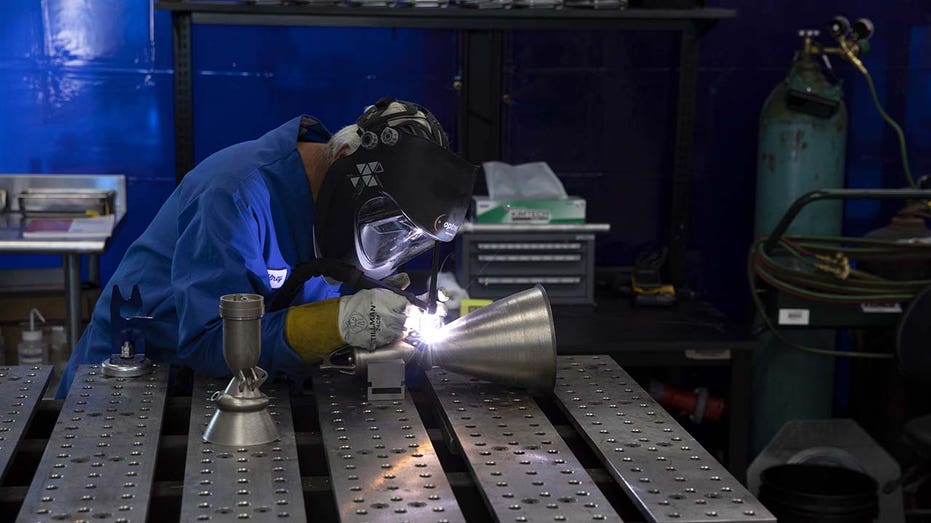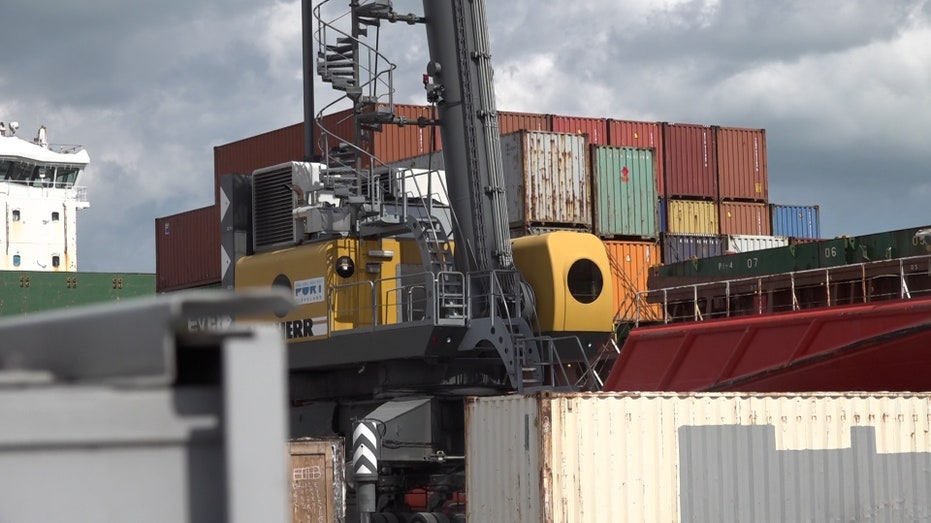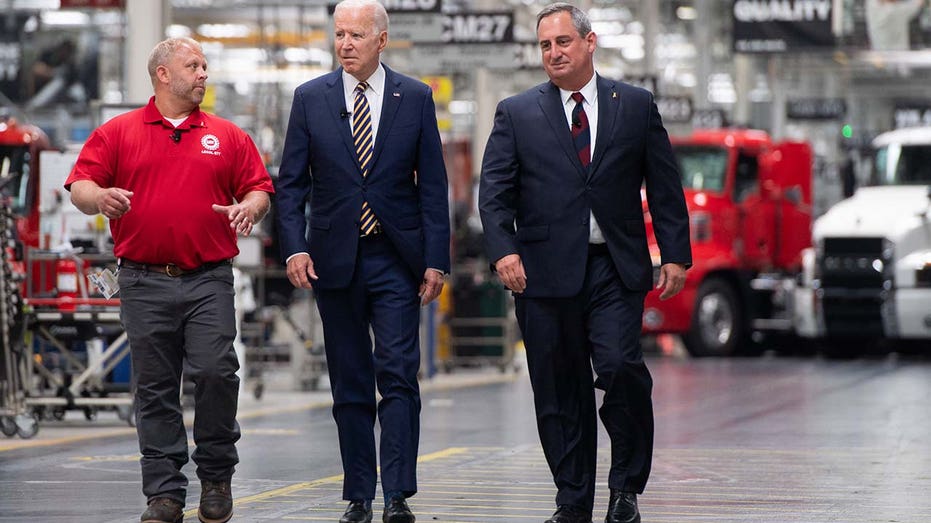Manufacturers weigh in as Congress negotiates China competition bill
America's largest manufacturing association presented lawmakers with a list of recommendations to compete with China
Biden lifting China tariffs a ‘gimmick,’ China ‘net benefit’: Sen. Hagerty
Sen. Bill Hagerty, R-Tenn., discusses President Biden’s ‘misguided policy’ regarding the removal of Chinese tariffs.
As Congress begins formal negotiations to compromise on the details of legislation aimed at boosting the country's ability to compete with China, American manufacturers have provided their two cents on the matter.
The National Association of Manufacturers sent a letter to congressional leadership Thursday as dozens of lawmakers convened for a "conference committee" to work out how to bridge the gap between the chambers' two separate bills: the Senate's United States Innovation and Competition Act and the House's America COMPETES Act.

A welder at Launcher in Hawthorne, California, US, on Wednesday, April 20, 2022. (Photographer: Alisha Jucevic/Bloomberg via Getty Images / Getty Images)
The trade association laid out ten priorities that began with praise for the $52 billion in semiconductor manufacturing subsidies included in both pieces of legislation, and support for another $45 billion to create a Manufacturing Security and Resilience Program as proposed in the House legislation to help ease supply chain woes.
MAJORITY OF CEOS PREPARING FOR A RECESSION AS SKY-HIGH INFLATION PERSISTS
Manufacturers also expressed support for the Ocean Shipping Reform Act aimed at increasing efficiency at U.S. ports, and for provisions that prevent counterfeiting of goods, writing that "counterfeiting, particularly from China, hits manufacturers of all shapes and sizes, but is especially devastating for small and medium-sized manufacturers fighting to protect their core products."

Smaller US ports offer potential solution for supply chain delays. (Stephen Goin / Fox News)
The NAM also called on Congress to reauthorize the Miscellaneous Tariff Bill will "full retroactivity back to Jan. 1, 2021, and without the broad and arbitrary restrictions included in the America COMPETES Act for future MTB cycles." The organization said that since the act expired at the end of 2020, "manufacturers and other businesses have paid more than $500 million in tariffs, or $1.3 million per day, on goods that are not available in the United States, adding inflationary and anti-competitive costs."
The manufacturers also appealed to lawmakers to reverse a recent change in the tax code that now requires research and development costs to be amortized over a period of years rather than immediately deducted as the code had allowed since 1954 until this year.
PHILADELPHIA FED'S MANUFACTURING GAUGE DROPS TO LOWEST LEVEL IN 2 YEARS
"This harmful change in the tax treatment of R&D expenses comes at a time of increasingly fierce global competition for research dollars," the NAM wrote. "Due to this tax change, the U.S. is now just one of two developed countries with an amortization requirement (the other being Belgium). Meanwhile, China—which has made no secret of its plan to become the world leader in advanced manufacturing—has increased its super deduction for R&D expenses to an extra 100% of eligible R&D expenses in addition to actual R&D expenses incurred."

US President Joe Biden tours the Mack Trucks Lehigh Valley Operations Manufacturing Facility alongside Martin Weissburg (R), President of Mack Trucks and Kevin Fronheiser (L), Shop Chairman of UAW Local 677, in Macungie, Pennsylvania, July 28, 2021. (Photo by SAUL LOEB/AFP via Getty Images / Getty Images)
The final point in the letter asked that conferees scrap provisions from the House bill that would assist labor unions' ability to organize, saying that "manufacturers are strongly opposed to the labor and card check provisions included in the America COMPETES Act."
GET FOX BUSINESS ON THE GO BY CLICKING HERE
The letter argued, "implementing ill-considered labor and card check provisions would upend decades of labor precedent with an anti-competitive, anti-democratic process that abolishes the secret ballot and eliminates appropriate oversight."
FOX Business' Tyler Olson and Reuters contributed to this report.





















